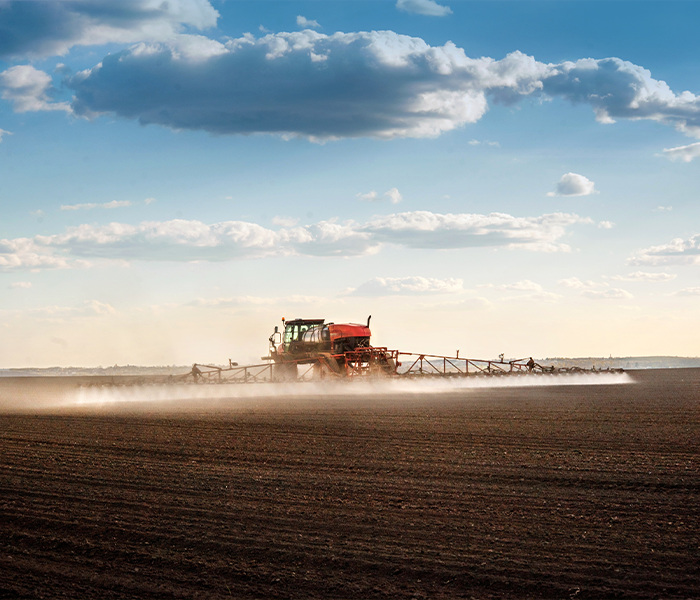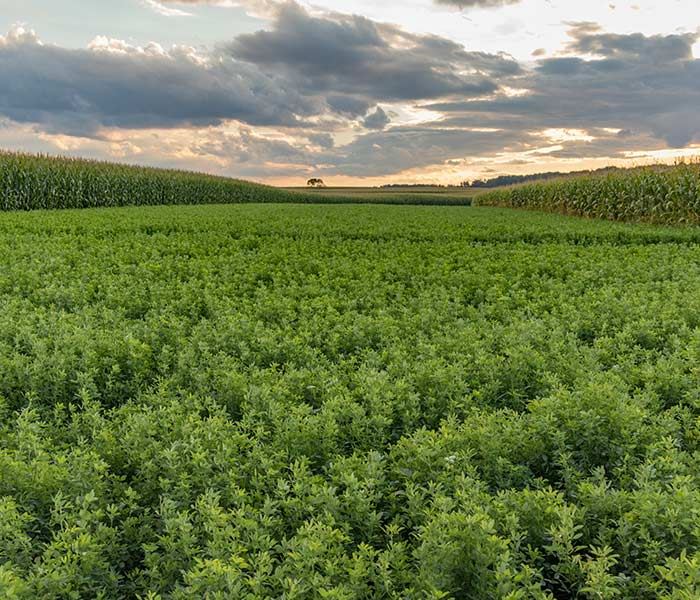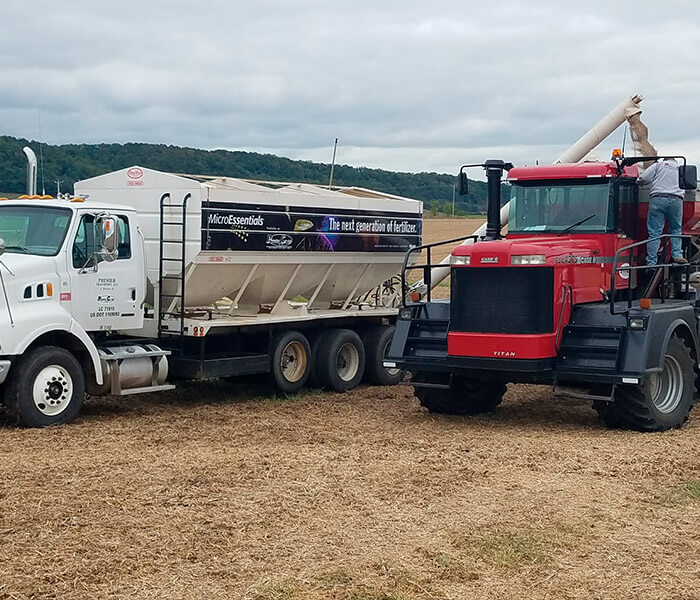Topics to think about.
Many times producers will plant alfalfa early out of convenience. But, planting alfalfa later has its benefits and may lead to more success on your farm.
Considerations for planting later:
- Alfalfa seed planted in mid-March will be in the “refrigerator” until soil reaches 45-50 degrees. Many pathogens are active in 35-40 degrees before alfalfa seed can germinate.
- Rapid and uniform germination occurs in “warm” soils. Cold soil often produce thin and uneven stands leading to possible replanting situations.
- Early spring seed bed preparation can be difficult, leaving clumps. Poor seed soil contact is not a good way to start alfalfa.
- Wet soils conditions often leave wheel tracks, which is not ideal for alfalfa.
- There is no yield advantage and more risk of stand loss between March and seeding in warmer soils in April.
- Seed depth control is important
- Shallow planting will be warmer early planting. Plant deeper later in spring as soils warm up.
- Seed treatments including fungicides (both Stamina® and Apron XL® (Grozone® from CROPLAN)) are absolutely required in any early planting.
Fill out the form below to contact a Premier agronomist and learn how to have a successful spring alfalfa planting.
Todd Miller
Winfield United




